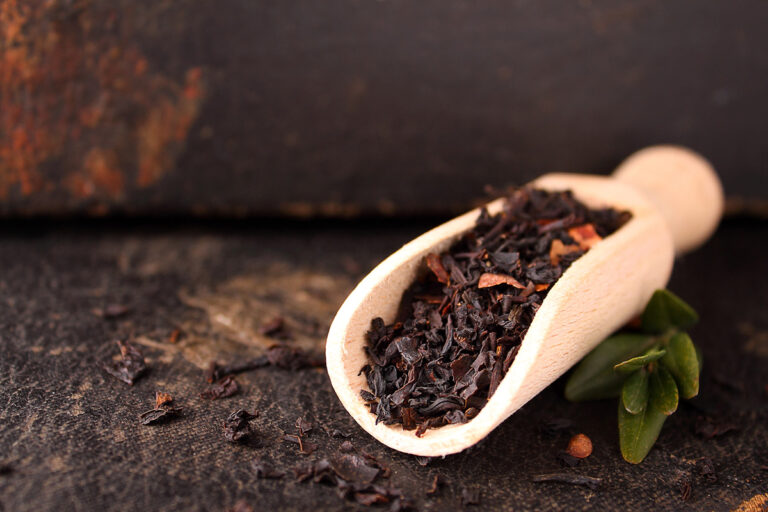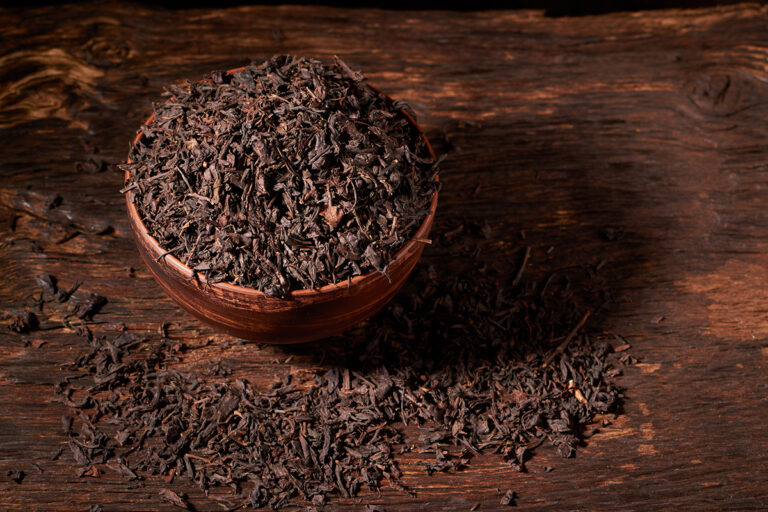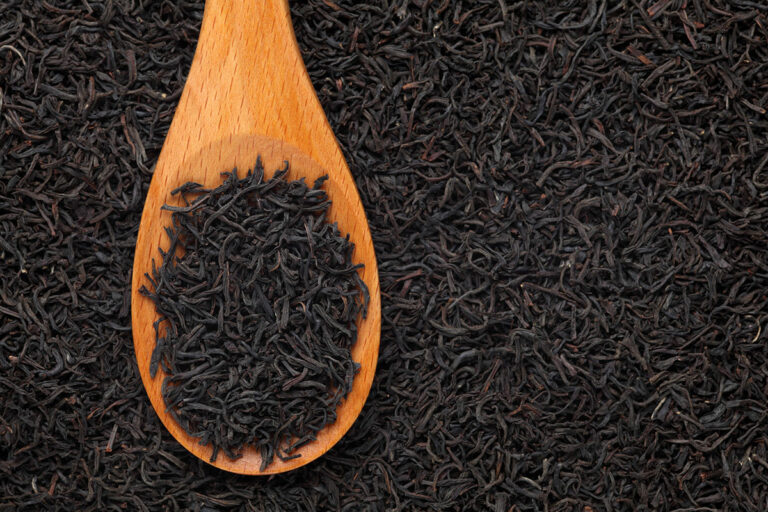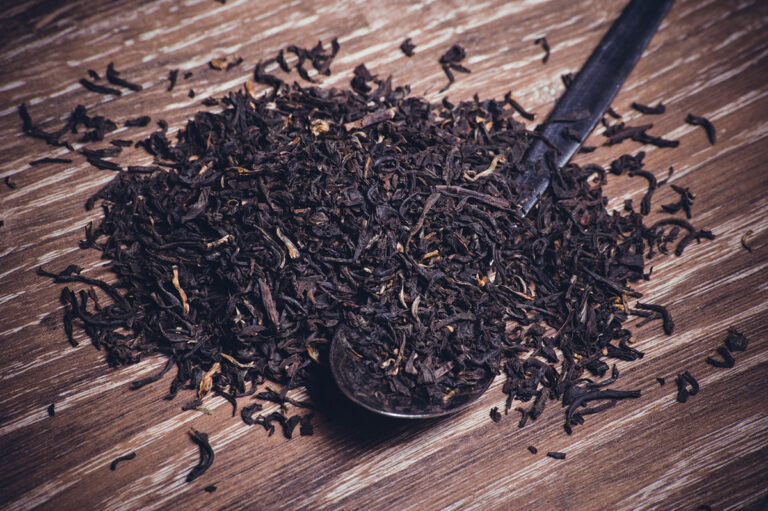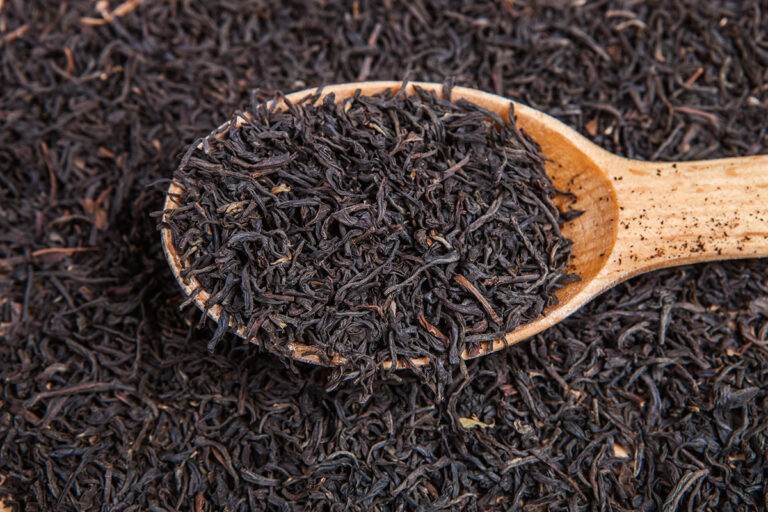Is Black Tea Fermented?
Black tea is one of the most popular types of tea consumed worldwide. Its unique flavor and bold taste have been appreciated by tea enthusiasts for centuries. A common question that arises is whether black tea is fermented or not.
In this article, we’ll delve into the process of making black tea and answer this question once and for all.
But before we start, is black tea fermented? The answer is no, black tea is not fermented. Fermentation refers to the process in which tea leaves undergo microbial activity, breaking down complex organic compounds and resulting in the development of unique flavors, aromas, and colors. This process is most commonly associated with Pu-erh and a few other dark teas but doesn’t happen with black, green, white, oolong, and the majority of other teas.

The Process of Oxidation: A Misunderstood Term
What is Oxidation?
Before we dive into whether black tea is fermented, it’s essential to understand the process of oxidation. Oxidation is a chemical reaction that occurs when tea leaves come into contact with oxygen in the air. This process is responsible for the color, flavor, and aroma of different types of tea. The level of oxidation varies among tea types, which is why we have distinct categories like green, white, oolong, and black teas.
The Confusion Between Fermentation and Oxidation
The term “fermentation” is often used interchangeably with “oxidation” when discussing tea processing. This can lead to confusion, as the two processes are not the same. Fermentation is a process that involves the breakdown of organic substances by microorganisms, such as bacteria or yeast. In contrast, oxidation is a chemical process involving the interaction of oxygen with tea leaves.
To answer the question “is black tea fermented?” we need to clarify the difference between these two processes and examine how black tea is made.
Black Tea Production: A Step-by-Step Guide
Step 1: Harvesting the Tea Leaves
The process of making black tea begins with the harvesting of fresh tea leaves from the Camellia sinensis plant. Only the young leaves and buds are picked, as these are the most tender and flavorful parts of the plant.
Step 2: Withering
Once the tea leaves are harvested, they are laid out to wither, which allows them to lose some of their moisture content. This step is crucial, as it makes the leaves more pliable and prepares them for the rolling process. Withering typically takes about 12 to 24 hours, depending on the climate and desired level of withering.
Step 3: Rolling
After the withering process, the tea leaves are rolled to break down their cell walls, releasing enzymes and essential oils. This step helps initiate the oxidation process, as the broken cell walls come into contact with oxygen. Rolling can be done by hand or using specialized machinery.
Step 4: Oxidation
Oxidation is the key step that sets black tea apart from other tea types. The rolled tea leaves are laid out and exposed to oxygen, which causes a chemical reaction that changes the color, flavor, and aroma of the leaves. The oxidation process can take anywhere from one to several hours, depending on the desired level of oxidation. Black tea is fully oxidized, giving it a darker color and stronger flavor compared to other tea types.
Step 5: Drying
Once the desired level of oxidation has been reached, the tea leaves are dried to halt the oxidation process and remove any remaining moisture. This step also helps to lock in the flavor and aroma of the black tea. Drying can be done using sun-drying, air-drying, or oven-drying methods.
Step 6: Sorting and Packaging
Finally, the dried black tea leaves are sorted according to size and quality. They are then packaged and shipped to retailers around the world.
So, Is Black Tea Fermented?
Now that we’ve explored the process of making black tea, we can answer the question, is black tea fermented? The answer is no; black tea is not fermented. The process that gives black tea its unique characteristics is oxidation, not fermentation. Although the terms “fermentation” and “oxidation” are often used interchangeably when discussing tea processing, they are distinct processes.
Fermentation involves the breakdown of organic substances by microorganisms, while oxidation is a chemical process where tea leaves interact with oxygen. Black tea is fully oxidized, which is responsible for its dark color, strong flavor, and robust aroma. There is no fermentation involved in the production of black tea.
Which Teas Are Fermented?
Several types of tea undergo fermentation, with Pu-erh tea being the most well-known example.
Some of these fermented teas include:
- Pu-erh Tea: As mentioned earlier, Pu-erh tea from Yunnan province in China is the most famous fermented tea. Both raw (Sheng) and ripe (Shou) Pu-erh teas undergo fermentation, with raw Pu-erh aging naturally over years or decades, and ripe Pu-erh undergoing accelerated fermentation through the wet piling process.
- Dark Tea (Hei Cha): Dark tea is a category of fermented teas that includes Pu-erh and other lesser-known varieties, such as Liu Bao, Fu Zhuan, and Tian Jian. These teas are produced in different regions of China and undergo post-production fermentation, resulting in unique flavors and health benefits.
- Kombucha: Kombucha is a fermented tea beverage made by adding a symbiotic culture of bacteria and yeast (SCOBY) to sweetened tea (typically black or green tea). The mixture is left to ferment for a week or more, resulting in a slightly fizzy, tangy, and sweet drink. Kombucha contains beneficial probiotics and organic acids, making it popular for its potential health benefits.
- Kvass: Kvass is a traditional Eastern European fermented beverage made from rye bread or other grains, sometimes including herbs or fruits. While not a tea in the traditional sense, kvass can be made with the addition of tea leaves, resulting in a fermented tea-like beverage with a unique flavor profile.
It’s important to note that while some teas undergo fermentation, the majority of teas, such as green, white, oolong, and black teas, do not. Instead, these teas are classified based on the degree of oxidation they experience during processing.
Best Black Teas to Consider
If the unfermented nature of black tea hasn’t deterred you, here are the best brands of black tea that you can try for your next batch.
Conclusion
Black tea is not fermented but rather fully oxidized. This oxidation process is what gives black tea its unique color, flavor, and aroma. The confusion between fermentation and oxidation is common, but it’s essential to understand the difference to accurately discuss tea processing.
Black tea offers a range of health benefits, making it a popular choice for tea enthusiasts around the world.
So, the next time you enjoy a cup of black tea, you’ll know that it’s the result of a carefully crafted process of oxidation, not fermentation.

